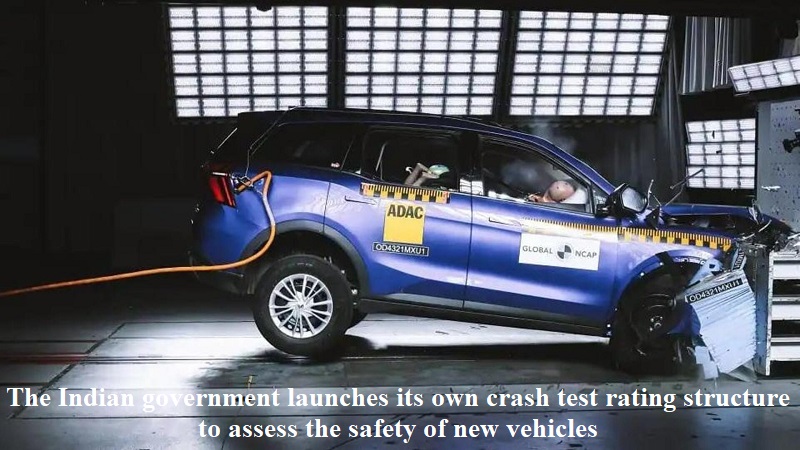
On August 22nd, the Indian government introduced its own system for crash test ratings aimed at evaluating the safety of new vehicles. This novel safety assessment mechanism, named the Bharat New Car Assessment Programme (B-NCAP), mirrors the approach of global counterparts like the NCAP and European NCAP by assigning star ratings based on a vehicle’s performance during crash tests.
The announcement was delivered by Union Minister for Road Transport and Highway, Nitin Gadkari, who underscored the crucial role of safer vehicles in India. This move is particularly significant given the substantial loss of lives in car accidents every year.
Gadkari emphasized that this step would align Indian automobiles with international safety standards, ushering cars in the country towards global benchmarks. He articulated these remarks during a press conference.
Effective from October 1, the new system will allocate ratings of one to five stars to vehicles based on their performance in various crash tests, encompassing frontal and side collisions, along with other safety parameters.
The intended impact of these ratings is two-fold: they empower consumers to make well-informed decisions about vehicle purchases, and they encourage automakers to elevate their safety protocols. This sentiment was previously echoed by officials.
Nitin Gadkari further expressed that B-NCAP could augment the Indian automotive sector’s prospects in the export market by enhancing both cost efficiency and product quality. He predicted a boost in production and profits, domestically as well as internationally.
Gadkari disclosed that the government has already received requests from various companies to test and certify over 30 car models.
Presently, crash testing is not obligatory for vehicles in India. However, a few manufacturers have reportedly subjected some of their models to testing at NCAP-accredited centers in Europe. This new initiative has been lauded for eliminating the need to send vehicles abroad for testing, reducing associated costs.
Kia India’s Chief Sales and Business Officer, Myung-Sik Sohn, hailed this development for eliminating the necessity and expenses linked to overseas vehicle testing.
Initially voluntary, participation in the B-NCAP program will involve a testing cost of around $72,237—a significant decrease compared to the global average of approximately $300,988.
Data from the Indian government indicates that at least 150,000 individuals lost their lives in road accidents in 2022.

Post Your Comments